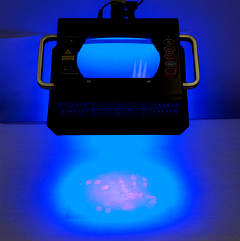 Resources
Resources
At ForensicsColleges, we want to connect students, prospective students, and professionals to the multitude of resources available online in order to stay up-to-date on recent news and trends within the online forensics community. From national news in the industry, cold cases in kidnapping, and top websites for different areas of forensic study, you can always find what you’re looking for here in our resources section.
Further your forensic knowledge and help continue the advancement of forensic research today. For additional information and up-to-date news, follow us on Twitter at @ForensicsEd.

Follow the Money: Tax Evasion & Asset Recovery
In an increasingly global and digital economy, preventing, detecting, and prosecuting tax evasion is a major challenge for governments worldwide. Even knowing the size of the problem is hard: hidden assets are difficult to count.

A Guide to Digital Forensics and Cybersecurity Tools (2024)
Some digital forensics tools go beyond simple searches for files or images and delve into the arena of cybersecurity, requiring network analysis or cyber threat assessment. When there is a tool for everything, the most pressing question is which one to use.

Handheld devices are not new to investigations—consider the magnifying glass or the breathalyzer test—but their growing complexity and efficacy are changing the way modern investigations are conducted. Samples that previously needed to be sent to a laboratory can now be analyzed at the scene. Combined with an increasingly skilled investigative workforce, this cuts down on processing times and opens up exciting new possibilities for the fields of criminal justice and forensic science.

Modern Forensic Science Technologies (2024)
As technology infiltrates every aspect of our lives, it is no wonder that solving crimes has become almost futuristic in its advances. From retinal scanning to trace evidence chemistry, actual forensic technologies are so advanced at helping to solve crimes that they seem like something from a science-fiction thriller.

Forensic AI: The Increasing Automation of Digital Forensics
Digital forensics will continue to evolve rapidly in the coming years. Advances in AI, IoT, cloud computing, and even quantum computing are already opening up new horizons. While the technology increases in power and capability, it will fall on tomorrow’s digital forensics experts to assist in the accuracy, efficiency, and accountability of those tools.

10 Top Online Forensic Accounting Programs
By earning a graduate certificate or degree in forensic accounting, professionals with bachelor’s degrees in accounting can become certified in fraud examination, thereby protecting individuals, corporations, and entire economies from the perils of financial corruption. Online forensic accounting programs have expanded to allow students to maintain their current jobs while earning a certificate or degree.

15 Top Forensic Biology Programs (2024)
Those educated in forensic biology can seek out careers as biologists, DNA biologists, biologist forensic examiners, biology DNA program specialists, and more.

Top 10 Signs That Someone is Lying
Did you know that just 54 percent of lies can be accurately spotted? Extroverts also tell more lies than introverts and at least 82 percent of lies go undetected. The good news, however, is that people can improve their lie detection abilities, increasing them to near 90 percent accuracy. But how do you get started?


